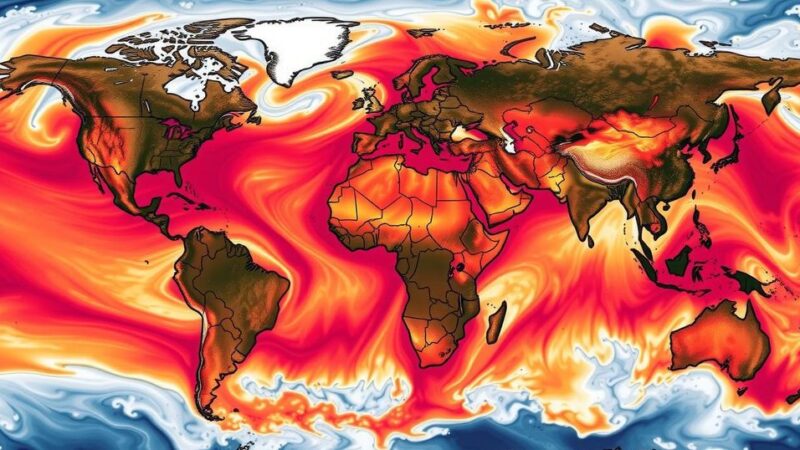As we enter the ninth year post-Paris Climate Agreement, many countries are not honoring their commitments to combat climate change. The upcoming climate conference in Brazil must result in binding agreements to hold laggards accountable. The United States, under former President Trump, poses a significant threat to global efforts due to potential rollbacks of climate policies. International cooperation and sanctions against non-compliant nations are critical to effective climate action.
As 2025 commences, we find ourselves in the ninth year since the implementation of the Paris Climate Agreement, wherein nearly 200 nations pledged to limit global warming to 1.5 degrees Celsius above pre-industrial levels. Despite this collective commitment, many nations have failed to fulfill their obligations, underscoring the urgency for accountability. Countries that adhere to their promises must increasingly impose penalties on non-compliers. This necessity arises from the reality that climate change does not respect national borders, and the failures of one nation can adversely affect the global community.
The world is at a pivotal moment; the organized fossil-fuel sector has greatly undermined international determination to combat climate change. The upcoming climate conference in Brazil this November presents an opportune moment to establish more ambitious targets. However, success will depend on negotiators creating binding commitments with enforceable consequences for those who fall short.
Central to this dilemma is the United States, which faces a critical juncture with the anticipated return of President Donald Trump. Previously, President Trump withdrew the U.S. from the Paris Agreement and dismantled numerous climate regulations, actions that placed the country at risk of becoming the largest global detractor from environmental progress. While President Biden sought to restore these initiatives, a return to Trump’s policies may reverse these gains, raising concerns about the U.S. commitment to mitigate its environmental impact.
Historically, the United States has contributed a vast proportion of global emissions, ranking second only to China for recent greenhouse gas pollution. Promises by Trump to bolster fossil fuel production signal a potential increase in environmental degradation, necessitating international scrutiny. Current conditions allow the U.S. to export significant quantities of oil, exacerbating global pollution while evading accountability under the Paris Agreement’s regulations regarding overseas emissions.
As Trump has previously expressed stringent expectations of NATO allies concerning defense spending, similar public pressure must be applied in the context of climate commitments. Climate change poses a far more significant risk than military confrontations, and nations should invoke the same accountability to ensure that all stakeholders contribute their fair share to addressing this global crisis.
Legal avenues to impose trade sanctions for non-compliance with climate commitments are under discussion at international legal forums, reinforcing the message that nations failing to act against climate disruption should face repercussions. U.S. Congress members have advocated for sanctioning entities contributing to severe environmental damage.
Significant climate action is imperative. By holding itself and others accountable for pollution, particularly targeting domestic fossil fuel producers, the United States could play a critical role in ensuring the integrity of the global climate agreement. As international negotiators approach this year’s climate discussions, they must convey a clear message to Trump: without substantial action against carbon emissions, the international community will impose consequences.
The Paris Climate Agreement, adopted in 2015, was designed to bring together countries in a combined effort to mitigate climate change by limiting global warming to below 1.5 degrees Celsius. However, the lack of enforcement mechanisms and disparate commitment levels among nations have led to significant challenges in global compliance. Observers note that the failure to meet targets and the persistence of fossil fuel interests undermine the agreement’s objectives. This context sets the stage for upcoming climate negotiations, which require a reevaluation of accountability measures, particularly concerning key players such as the United States. As global temperatures continue to rise, the urgency for stronger policies and international cooperation has never been greater.
The urgent need for climate action is heightened as many countries falter in their commitments under the Paris Climate Agreement. The outcome of the forthcoming climate conference in Brazil will depend on establishing enforceable targets to hold non-compliant nations accountable. The United States, particularly under the potential leadership of President Trump, represents a significant challenge to global climate efforts. Resolute international cooperation and rigorous accountability mechanisms are essential to navigate the climate crisis effectively, emphasizing the interconnectedness of national commitments and global environmental health.
Original Source: www.meer.com







